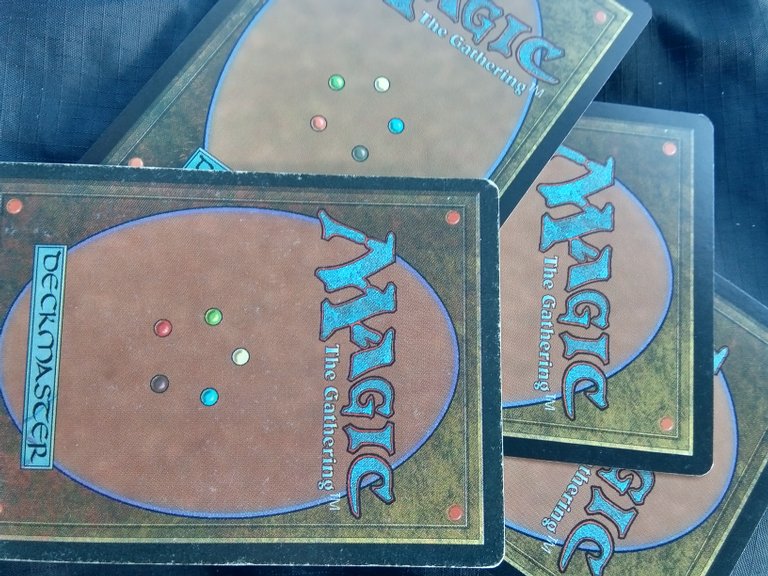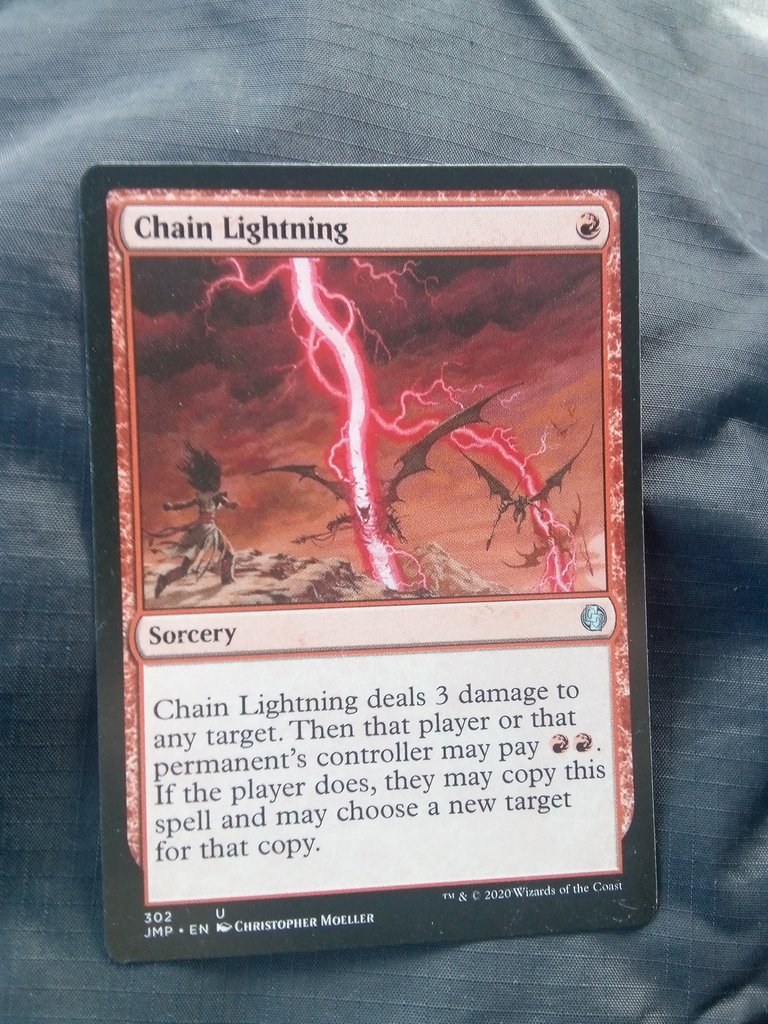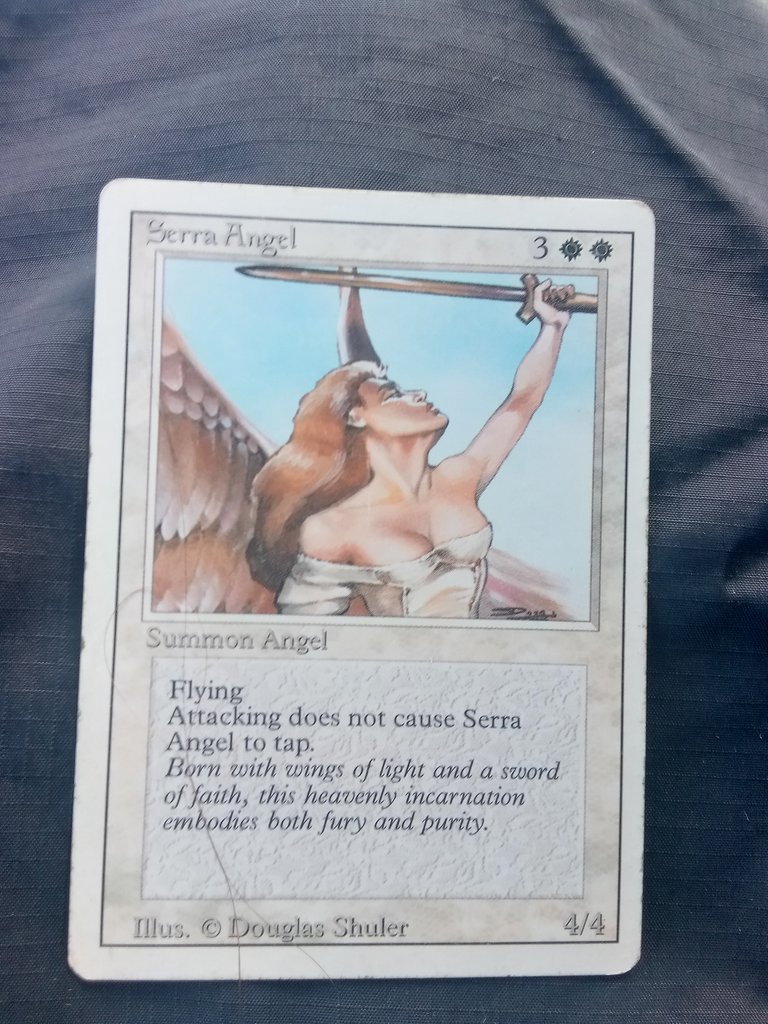Magic the Gathering- Control vs Speed Decks, a History

Good morning everybody. I just wanted to give credit for all the art in the post. It's been photographed by myself and is copyrighted Wizards of the Coast 1993 to present with artist credits in the cards themselves.
Throughout Magic the Gathering's history there been two main types of decks- there's been control decks and there's been speed decks. There's also been combo decks, and I consider them to be a subset of their own. Combo decks have always been a thing in Magic, but really I wanted to focus on the two opposing sides control versus speed decks.

In the beginning of Magic, there was a deck called The Keeper, which was the winner of the first ever Magic the Gathering Championship was won by a player who employed the control deck strategy the deck itself had two finishers two Serra Angels. Serra Angel one of the most famous creature in Magic the Gathering. The deck used Icy Manipulator, Jayemdae Tome, Disrupting Scepter, Mana Drain and various other measures to control the game and the board. In essence the the deck itself employed strategies to gain card advantage- card advantage is really how you win Magic the Gathering games. If you can employ a card that destroys two of your opponent's cards you can bleed out their deck and win. Cards like Control Magic or Disrupting Scepter could continuously drain your opponents hand and the battlefield and be employed to win the game.

Some classic control staples include Nevinyrral's Disk, Wrath of God, Control Magic, Counterspell, Icy Manipulator and a whole host of other cards that are there to control the way that your opponents game is played. In essence, the control deck is there to be a real pain in the butt to your opponent. The speed deck and the control deck often met up in the battlefield and depending on who got off on the best foot there could be a winner but the control deck really could win if you got past turn four. A key aspect of the control deck is card draw as well. Speed decks rarely employed consistent card draw mechanisms and could run out of threats past turn 4. As a control deck, you could slow the speed deck down and win over time.
Now, let's talk about the speed deck. Speed decks are a deck class of their own and are one of the most common early Magic the Gathering. Speed decks are typically cheaper to build than control decks which rely on expensive and powerful spells to win. One of the first viable speed decks was called sligh. It was a mono red deck that employed fast creatures and direct damage spells like lightning bolt and a whole host of cheap and powerful reusable damage. It's pretty amazing that ironclaw works was really the workhorse of the deck that deck class really evolved and came to its own when Tempest hit the scene. Cards like Jackal Pup, Mogg Conscripts, Shock and Cursed Scroll made these decks fast and dependable if you could drop a creature on turn one support it with some direct damage and have a continuous stream of damage aimed at your opponent's head you could win by turn four or five. Not to mention many people played these decks because many of the cards were cheap commons.
You would often see control decks and speed decks lock horns. They're a whole host of them and certain colors really lend their strengths to speed- red, green and black decks employ cheap reusable creatures with evasion abilities to get beyond your opponent's defenses and overwhelm the control deck. the control deck would employ board sweepers like Wrath of God and the Nevinyrral's disk to get rid of the swarm. The control deck would see the direct damage spells as a direct threat to themselves so they would employ counterspells and potentially cards that would gain them life like Ivory Tower on a consistent basis if you could nullify the direct damage and the horde of creatures you could win the game but again you had to set up those first four turns very very powerful.
What happened when a control deck fought a control deck what happened with a speed deck fought a speed deck? These were some of the coolest matches to watch. As an example, there was an old card called Kjeldoran Outpost very slowly that produced a swarm of soldiers that was used as a kill mechanism in control decks. You would often see two control decks going at each other and a horde of 10 plus tokens knocking down each other's door. You would see control decks employ cards like Millstone that would destroy each other's libraries you would see counter offensive so cards like sold Soldevi Digger and Feldon's Cane would be employed to keep two control decks from decking each other when two speed decks fought it really was anybody's game. Direct damage would be employed to kill creatures but often time a swarm would overwhelm another swarm.
The sideboard is incredibly important in these matches. Control decks know they will get overwhelmed by creatures and what often use cards like Moat and Propoganda and various other cards aimed at stopping The horde and gaining card advantage. Speed decks needed to employ the sideboards and would use cards like Pyroblast, Red Elemental Blast and Scald to stop counterspells and large finishers from killing off their hordes. It'd be really really important to tailor your sideboard to the control or the speed deck or else you would lose.
As the game continues to evolve, we see the same classic battles- there will be decks that are aimed at controlling the board and sweeping it and there will be decks that are aimed at producing a large horde of creatures and using direct damage to win quickly. If you find yourself on either side of the game, you need to know what type of deck you're playing against. If you're playing against a control deck or speed deck you have to utilize your sideboard you have to be cautious and you may decide to employ different strategies. That's why in Magic the Gathering, studying and play testing versus other opponents and a variety and diversity of deck types is absolutely essential. Magic the Gathering gameplay means that you have to create and forge your deck to be effective against both control decks and speed decks. If you want to know, I enjoy playing control decks the most.
Posted on Hive and Blurt
